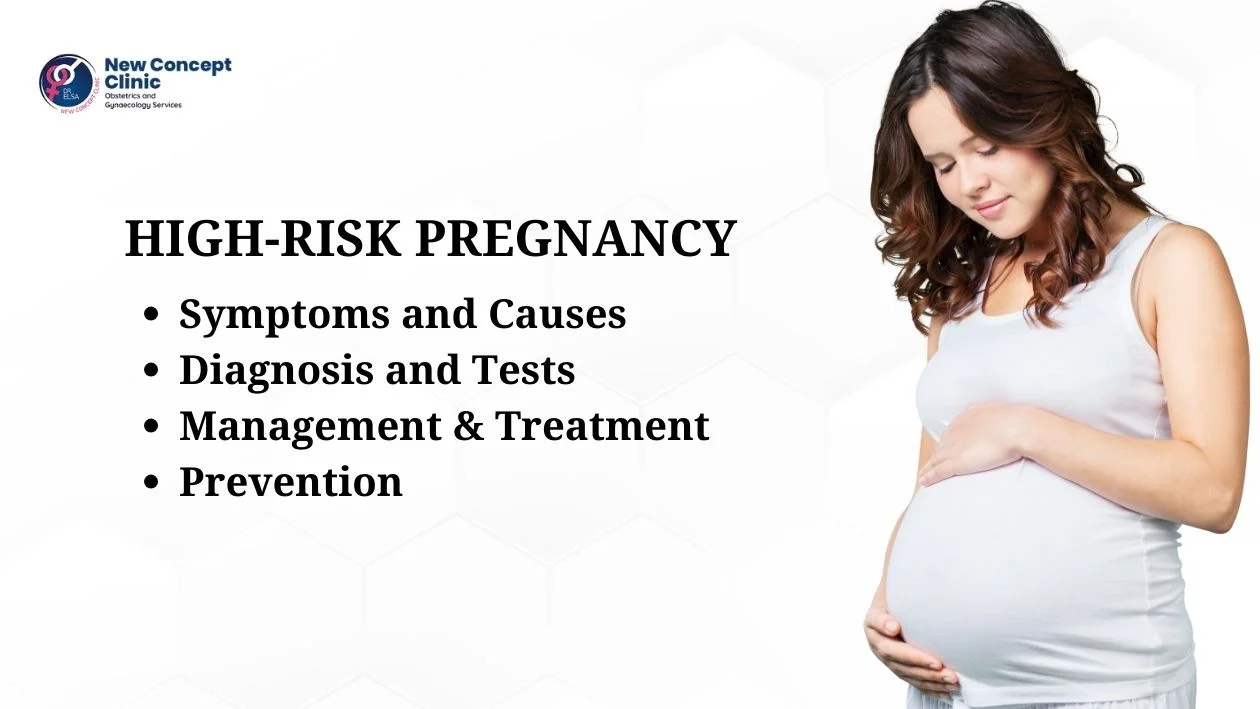

A high-risk pregnancy is one that poses significant health hazards to the pregnant woman, the fetus, or both. Certain health issues, as well as your age (over 35 or under 17 when pregnant), can put your pregnancy at danger. These pregnancies require constant monitoring to reduce the risk of problems.
Every pregnancy carries hazards. A "high-risk" pregnancy is one that poses significant health hazards to the pregnant person, the fetus, or both. People with high-risk pregnancies may require more care before, during, and after giving delivery. This will help you to reduce the risk of problems.
However, having a high-risk pregnancy does not guarantee that you or your fetus will experience complications. Despite having exceptional health needs, many people have healthy pregnancies as well as regular labor and delivery.
Every year, over 50,000 persons in the United States endure serious pregnancy problems. Overall, black people are around three times more likely than white people to die as a result of pregnancy problems.
The following factors contribute to a high-risk pregnancy:
Preexisting health conditions.
Pregnancy-related health conditions.
Lifestyle factors (such as smoking, drug addiction, alcoholism, and exposure to specific chemicals).
Age (above 35 or under 17 if pregnant).
People with many preexisting conditions have increased health risks during pregnancy. Some of these conditions include:
Autoimmune illnesses include lupus and multiple sclerosis.
COVID-19.
Diabetes.
Low body weight (BMI < 18.5).
Depression is one example of a mental health disorder.
Obesity.
High blood pressure.
HIV/AIDS.
Kidney disease.
Thyroid illness.
Blood clotting diseases.
Pregnancy-related health issues that can endanger the pregnant individual and fetus include:
Birth defects or genetic conditions in the fetus.
Poor growth in the fetus.
Gestational diabetes.
Multiple gestation (pregnancy with more than one fetus, such as twins or triplets).
Previous preterm labor or birth, or other complications with previous pregnancies.
Consult your doctor right away if you have any of the following symptoms during pregnancy, regardless of whether your pregnancy is deemed high-risk:
Abdominal pain that doesn’t go away.
Chest pain.
Dizziness or fainting.
Extreme fatigue.
Severe headache that won’t go away or gets worse.
Swelling, redness or pain in your face or limbs.
Thoughts about harming yourself or the fetus.
Trouble breathing.
The fetus's movement stopping or slowing.
Fever over 100.4°F.
Heart palpitations.
Nausea and vomiting that’s worse than normal morning sickness.
People who become pregnant for the first time beyond the age of 35 have higher risk pregnancies. According to research, they are more likely to develop issues than younger ones. These can include early pregnancy loss and pregnancy-related health issues including gestational diabetes.
Young people under 17 also have high-risk pregnancies because they may be:
Anemic.
More likely to have premature labor or birth.
Unaware they have sexually transmitted infections (STIs).
Less likely to get thorough prenatal care.
A high-risk pregnancy can be life-threatening for the pregnant person or fetus. Serious complications can include:
Preeclampsia (high blood pressure from pregnancy).
Eclampsia (seizure from pregnancy).
Preterm delivery.
Cesarean delivery (C-section).
Excessive bleeding during labor and delivery, or after birth.
Low or high birth weight.
Birth defects.
Problems with the fetus's brain development.
Neonatal intensive care unit admission for your baby.
Intensive care unit admission for you.
Stillbirth.
Tests to monitor your health and the health of the fetus may include:
Blood and urine testing to check for genetic conditions or certain congenital conditions (birth defects).
Ultrasonography, which uses sound waves to create images of the fetus to screen for congenital conditions.
Monitoring to ensure the fetus is getting enough oxygen, such as a biophysical profile, which monitors their breathing, movements and amniotic fluid using ultrasound, and a non-stress test, which monitors their heart rate.
Management for a high-risk pregnancy will depend on your specific risk factors. Your care plan may include:
Closer follow-up with your obstetrician.
Consultation with other medical specialists.
More ultrasounds and closer fetal evaluation.
Home blood pressure monitoring.
Consultation with a maternal fetal medicine (high-risk pregnancy) specialist.
Careful monitoring of medications used to manage preexisting conditions.
If your health or the health of the fetus is in danger, your healthcare provider may recommend labor induction or a C-section.
You can reduce your risk of pregnancy complications by:
Avoiding drugs and alcohol.
Identifying potential health risks before getting pregnant. Tell your doctor about your familial and personal medical history.
Maintaining a healthy body weight before pregnancy.
Managing any preexisting health conditions you may have.
Making sure any long-term medications are safe to take during pregnancy.
Quitting smoking.
Planning pregnancies between the ages of 18 and 34.
Practicing safe sex.
Many people who have high-risk pregnancies don’t experience any problems and deliver healthy babies. But they may be at a higher risk for health problems in the future, including:
Complications during future pregnancies.
Postpartum depression.
Stroke.
High blood pressure.
Cardiovascular disease.
Type 2 diabetes.
Some high-risk pregnancies can increase a child’s risk of:
Behavioral problems.
Breathing disorders.
Gastrointestinal diseases.
Obesity and diabetes.
Mental health conditions.
Growth and developmental delays.
Neurological disorders.
Vision, hearing, or dental problems.
Read :- Abdominal Pain Causes and Treatment
It’s possible for pregnancy-related complications to occur up to six weeks after a pregnancy ends. Pay close attention to your health. Alert your healthcare provider right away if you notice anything abnormal.